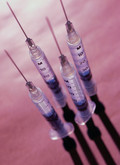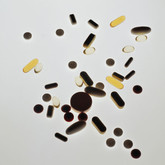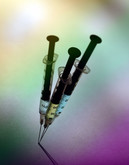Biosimilars/News
Is FDA requesting too much data to allow biosimilars to succeed in the US
The FDA’s recently published plans for a biosimilar approval pathway are facing increasing scrutiny. In an interview with Scientific American, Novel Health Strategies’ biosimilar market entry advisor, Dr Saurabh Aggarwal, said that the level of data required by FDA is too much for biosimilars to be able to succeed [1].
EMA and FDA to collaborate on biosimilars
The EMA announced on 23 June 2011 that it had set up a new ‘cluster’ to collaborate with the FDA for the exchange of information on biosimilar drugs.
Mylan re-brands Matrix Labs to enter Indian market
US generics manufacturer Mylan announced on 27 May 2011 that it plans to rebrand its India-based subsidiary Matrix Laboratories as Mylan in order to launch its own prescription drugs in the emerging Indian market over the next year.
Interchangeability of biosimilars in the US
As drug manufacturers await guidance on a biosimilar approval pathway in the US, the debate goes on as to how high the bar will be set for the FDA to designate a biosimilar as interchangeable. In one critical area of the law that outlines biosimilar regulations, Congress outlines the difference between biosimilarity and interchangeability with respect to biosimilars and innovative biologicals, but the FDA has yet to define the difference.
Biosimilars user fees as high as brand-name fees
On 9 May 2011, the FDA proposed a user fee programme that would see drugmakers seeking approval to market biosimilars in the US initially paying fees similar to those required of originator biological drug developers.
Teva grabs biopharmaceutical company Cephalon
On 2 May 2011, Teva and Cephalon announced that they had unanimously approved a definitive agreement under which Teva will acquire all outstanding shares of Cephalon for US$81.50 per share in cash, or a total enterprise value of approximately US$6.8 billion.
Generics manufacturers and biosimilars
According to a report by the Wall Street Journal on 31 January 2011, generic manufacturers are expecting biosimilars to be the next cash cow, with sums in the multibillions of dollars expected to be reaped from this market in the near future.
Everybody jumping on the biosimilars bandwagon
According to a report by Reuters on 13 January 2011, Big Pharma is taking a major interest in the biosimilars market. During interviews with Amgen, Merck, and Biogen Idec at the JP Morgan’s 28th Annual Healthcare Conference in San Francisco, USA, biosimilars was the hot topic.
Boehringer Ingelheim acquires Amgen biotech site
Boehringer Ingelheim, one of the world’s leading companies for contract development and manufacturing of biopharmaceuticals, announced on 25 March 2011 that it had formally acquired Amgen’s biopharmaceutical development and manufacturing facility in Fremont, California, USA.
Further lobbying over biosimilars
Brand-name drug companies are trying to weaken a provision of the US Patient Protection and Affordable Care Act that was designed to open up generic competition in biotechnology medicines and save billions of dollars. The industry, patients and providers are watching closely to see how the FDA will interpret the law, in documents that are expected to be released during late 2011.













